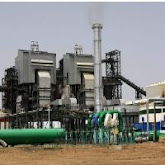Gangakhed Sugar
Founded on September 28, 2007, Gangakhed Sugar & Energy Limited (GSEL Maharashtra)is one of the best sugar manufacturers public company that is registered in Parbhani, Maharashtra, India. The company is currently active, and as of March 31, 2017, it has delivered its annual returns and financial statements (FY 2016-2017). According to the MCA, this limited liability company has an authorised capital of Rs 105.00 crore and a paid-up capital of Rs 80.17 crore.
Utilizing
extra bagasse from local sugar mills, biomass, and agricultural waste allows
the 30 MW cogeneration power plant with a 110 ata pressure boiler to operate at
full capacity.
They have a
range of skills that enable them to progress and stand out from competitors.
These skills include excellent customer relationships, a solid infrastructure,
two roller mill technology, and a wide range of goods.
The mission
of the organisation is to effectively manage the plants using BAST (best
available systems and technology), create items of the highest caliber,
establish benchmarks, and consistently deliver excellence.
The
organisation has three directors and two signatories. Dattatray Ravan Gaikwad
is the Chief Financial Officer (KMP) of Gangakhed Sugar & Energy Limited
India, and Rajendra Daulatrao Dongare is the CEO (Kmp). Currently working
together as directors are Kalpana Bhagwat Gutte, Ratnakar Manikrao Gutte, and
Vishnu Ambaji Mundhe.
With his
31 years of expertise in the power sector, Ratnakar Gutte, Gangakhed Sugar Owner., has enriched the organization.
Under his direction, the business quickly reached a number of previously
unreachable milestones and rose to prominence as one of Maharashtra's top
producers of sugar, electricity, and distillery goods.
In a
relatively short period of time, Ratnakar Manikrao Gutte, a man of mission,
aim, and planning, established the Company as a household name in the sector of
sugar and power plant execution. He comes from a first generation of business
owners and has extensive practical experience in engineering, the nuances of
civil construction, installing machinery, finance, banking, taxation, general
management, and commercial problems.
Mr.
Radheshyam Tiwari has a master's degree in business administration and a
postgraduate degree in commerce. He has 34 years of expertise managing finances
and accounting in the business world. With his great accounting skills, he has
been monitoring the business's accounting operations from its beginning, and
under his leadership, the company has attained a steady financial position.
PRODUCT
PROFILE
1. SUGAR
Sugar is one
of the main products manufactured by the company. To optimize sugar recovery,
reduce losses and transport costs, and retain friendly relations with the
agricultural community, the company has undertaken several initiatives. The
juice that is extracted from the crushed cane is evaporated to create sugar.
This is a common sweetener used in both food and beverages. In India sugar is
mostly packed and sold loose.
2. Molasses
When sugar
cane is refined to produce sugar crystals, molasses, a delicious byproduct, is
extracted. The sugar crystals are separated from the liquid by machines using
centrifugal force. The leftover syrup transforms into molasses.
3. Bagasse
Bagasse is a
by-product that may be utilized in two profitable ways: to make paper and to
create power. An environmentally beneficial alternative to the traditional
method of obtaining pulp from trees is to make paper from bagasse.
Bagasse makes
around 30% of the entire amount of sugar produced. Thus, 1,800 tones of bagasse
are produced per day at a 6,000 TCD facility.
4. Alcohol
Molasses, a
waste product from the manufacture of sugar, is distilled to make ethanol,
rectified spirit, extra neutral alcohol, denatured spirit, and other products
that are used in the chemical, pharmaceutical, and alcohol industries. Another
useful alternative fuel is ethanol.
5. Energy
Bagasse is
used to generate power because it has a high heat factor, replacing the
traditional thermal option and reducing greenhouse gas emissions. Currently,
boilers powered by bagasse provide the energy needed by sugar mills.
The
government of India has begun to push the co-generation of power from bagasse.
Both a higher return for sugar mills and the production of power, a resource
that is scarce in India, are anticipated outcomes of this.


Comments
Post a Comment